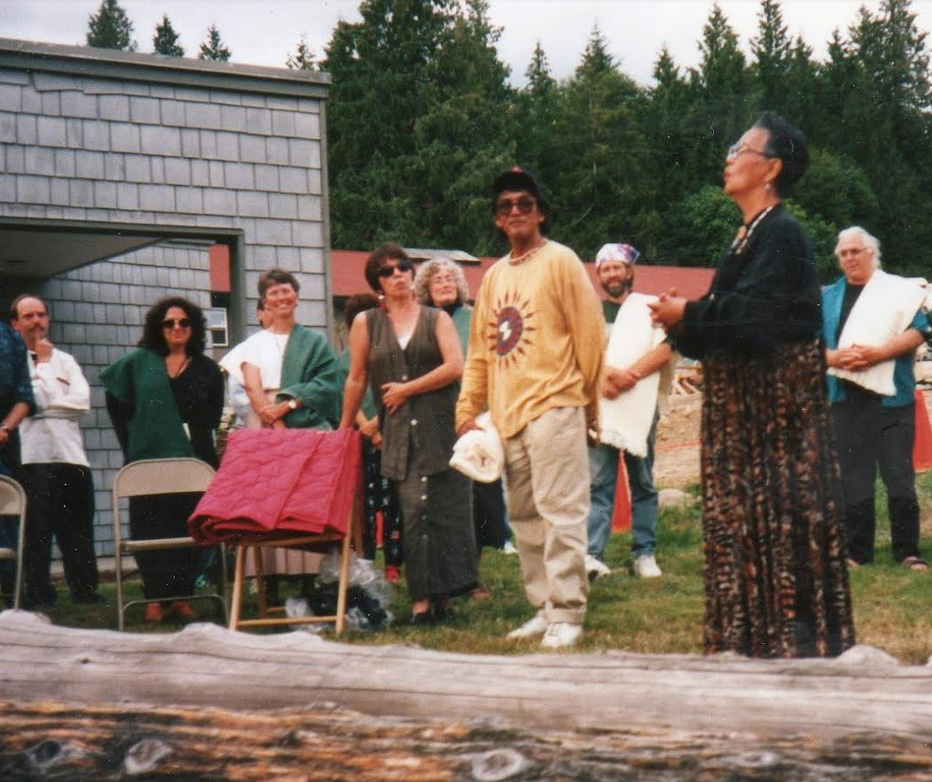LESSONS
The Voices of Lushootseed
Lushootseed Research is excited about a new feature to our website. Available now and currently under construction is our lessons page. This feature was created to enhance the original Lushootseed language curriculum developed by Thom Hess and Vi Hilbert.
Since many of us grew up speaking English as a first language, many of the sounds required to speak Lushootseed are unfamiliar and difficult to master. Unfortunately, for some of us it is extremely difficult to find time within our busy schedules to travel, sometimes great distances, to where classes are available. In-spite of the heroic efforts of numerous tribal language programs and many dedicated individuals, both Native and non-Native, who continue working tirelessly promoting and teaching the Lushootseed language, their numbers are still very low. The good news is that the number of Lushootseed speakers is growing daily thanks to their efforts!
With many of these challenges in mind we hope the audio clips featured on our lessons page will help and encourage those who endeavor the challenges of independent learning.
We are especially grateful for Vi Hilbert and Helen Ross who recorded all of the lessons in the curriculum. If it were not for their wisdom and foresight none of these audio clips would be available.
liłlaqəxʷ wiẁsuʔəxʷ kwi łasluud tiʔeʔ cədił sx̌ʷudx̌ʷud čəł. [gʷəł čəwatil əlgʷəʔ.]
Future youngsters will be the ones to hear our talk. [and they will learn.]

These instructional texts are the results of more than thirty years of research, collaboration and consultation with the University of Washington and many highly respected Coast Salish elders throughout Puget Sound including:

About the Lessons
The following lessons do not represent the original Lushootseed curriculum in it’s entirety. They are meant to compliment the original text (work books) offering audio clips from two highly respected elders and fluent speakers, Vi Hilbert and Helen Ross. Both Lushootseed work books (Book One and Book Two) are available through this website.
BOOK ONE
An Introduction
The Language of the Skagit, Nisqually, and other tribes of Puget Sound
Arranged by Thom Hess and Vi Hilbert
in consultation with:
Louise George, cisxʷisał; Dewey Mitchell; Helen Ross, switatkʷ; Al Sampson, sx̌əlpqidəb; Martin Sampson, ʔalatał; Ernie Barr, šidut; amd Joyce Cheeka, sdᶻəẁil
Please Note: These lessons are currently under construction. At times you may notice format changes as well as floating or incomplete information. We ask for your patience as we are seeking the most effective and cost efficient way to share these lessons with the public for the promotion of the Lushootseed language. Thank you!
dəč̀uʔ (Lesson One)
Choral Repetition
| 1. | stab əw̓ə tiʔił | What is that? (What could that be?) | |
| (stahb u-wu teeʔeeł) | |||
| spaʔc tiʔił | That is a bear. | ||
| (spahts) | |||
| 2. | stab əw̓ə tiʔił | What is that? (What could that be?) | |
| sqigʷəc tiʔił | That is a deer. | ||
| (sqA-gwuts) | |||
| 3. | stab əẁə tiʔił | What is that? (What could that be?) | |
| sʔuladxʷ tiʔił | That is a salmon. | ||
| (s-ʔO-lad-dwh) | |||
| 4. | stab əẁə tiʔił | What is that? (What could that be?) | |
| bəščəb tiʔił | That is a mink. | ||
| (bush-chub) |
